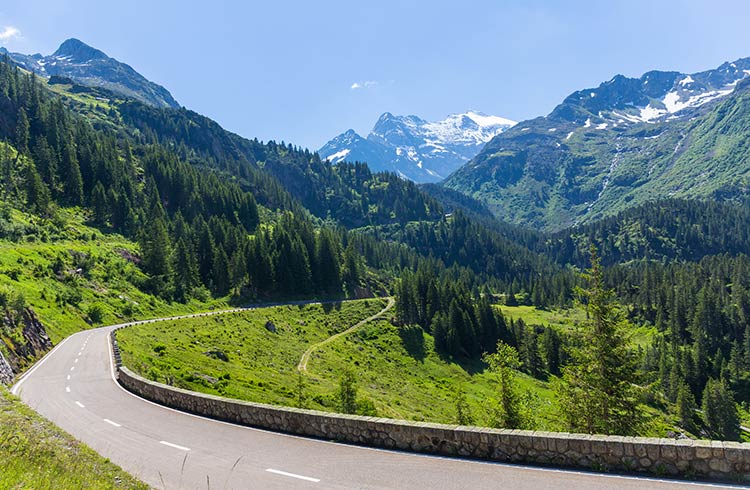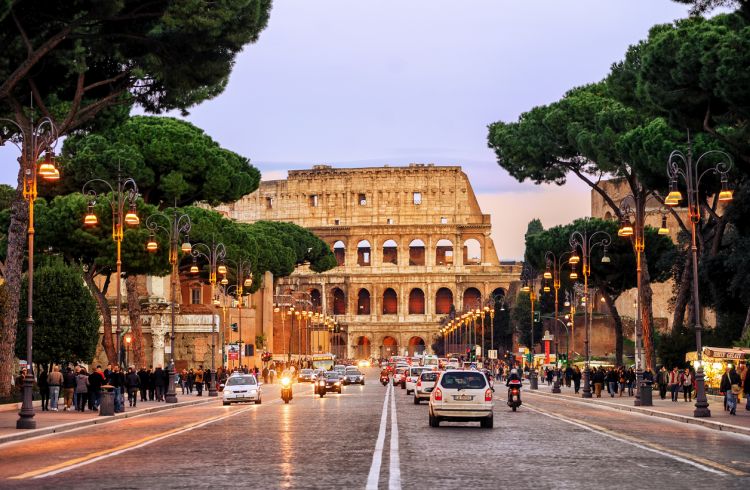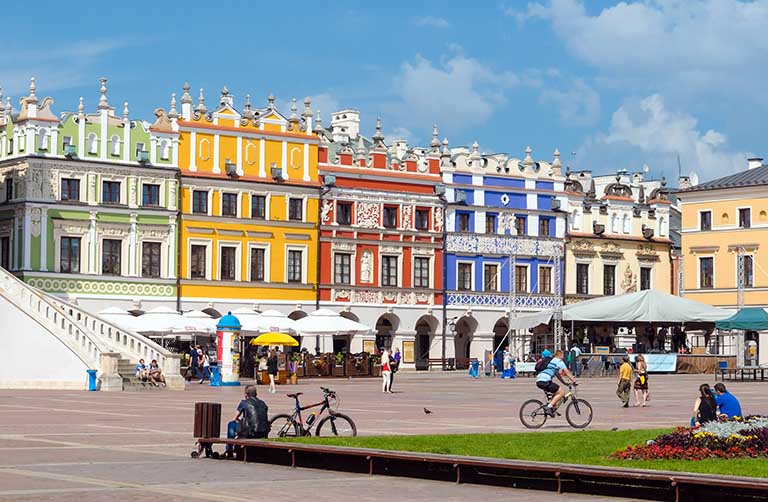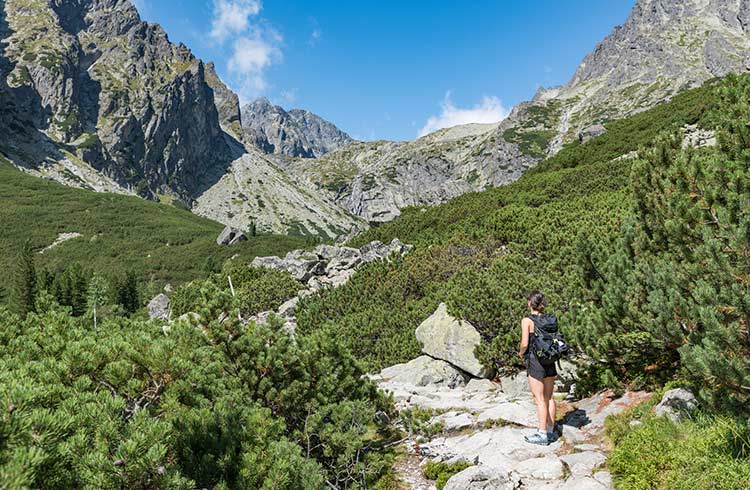Safe Driving in Switzerland: Road Rules You Must Know
Switzerland's mountain roads are alluring for road-tripping travelers, but you should be aware of road rules, safety and dangers before you get in your rental car. Here's what you need to know.
 Photo © Getty Images/R.Tsubin
Photo © Getty Images/R.Tsubin
Switzerland has some of the most beautiful yet hair-raising drives in the world, and visitors will be impressed by the remarkable engineering of roads and bridges in alpine regions.
Before you take to the roads in your rental car, here's what you need to know to stay safe while driving in Switzerland.
Road rules in Switzerland
Road accidents are a major cause of death in Switzerland, so there are very strict laws in place for drivers. Here are a few road rules to keep in mind:
- The Swiss drive on the right, with overtaking on the left
- All secondary roads give priority to traffic from the right unless a priority sign is displayed (yellow diamond on a white background). If in doubt, give way to the right
- Drivers in Switzerland must always give way to emergency service vehicles, such as police, ambulance or fire services
- Vehicles in Switzerland must carry a warning triangle that is used for breakdowns or accidents. This is a mandatory requirement, and drivers are also obliged to carry a fluorescent jacket if they cross the borders into Italy, France and Germany
- In many European and Scandinavian countries, you cannot carry the triangle and the jacket in the boot/trunk of the car, they must be with you in the cabin – they take safety very seriously here
- At a traffic light or at a road crossing divers must switch off their engines to avoid pollution
- The Swiss police are very strict on driving distractions. If you are using a cell phone, expect a huge instant fine. Depending on which canton you're in, you might find a similar fine for eating while driving, using earphones that prevent you hearing emergency services vehicles or for fiddling with your GPS. So leave the phone and sandwich until you've pulled over
- Driving speeds in Switzerland are much slower than other parts of Europe, and drivers should be vigilant for speed warning signs – especially after crossing borders
- Vehicles traveling on motorways must display a special vignette or car sticker (which costs a few Euros), otherwise there is an on-the-spot fine.
In addition to the regular road rules, the Swiss have a rule about drunk passengers you might not be used to back home.
Drink driving in Switzerland
The blood alcohol limit is 0.05% for drivers, and penalties are strict with a heavy fine or a jail sentence if you are over the limit. Random alcohol breath tests are carried out throughout Switzerland.
While this isn't unusual, you must be aware that if you hold a driving license and are traveling in the same car as a driver who is drunk, you may also lose your license as it is considered you are just as irresponsible for letting them drive you around.
How to drive the Swiss mountains safely
Driving safely in the mountains is a skill, and the Swiss have a number of ground rules that may not be common sense to foreign travelers.
Always remember: look at the road, not the beautiful view.
- When driving on narrow roads, the uphill driver has the priority and the downhill driver is expected to back-up if there is insufficient passing room, unless – and this is where it gets tricky – there is room nearer the uphill driver
- It is recommended not to brake excessively on steep roads as this can cause brakes to overheat and stop working. It is better to pull in and turn the car engine off for a few minutes which gives the brakes time to cool down
- On mountain roads groups of vehicles such as lorries have priority over cars. Buses and trucks have the priority over cars, and buses have a priority over trucks
- On very narrow mountain routes if you are told to do something by the public transport employee or driver you must do so, as their local knowledge of road conditions is considered to carry the weight of law
- In winter, drivers must use snow chains and winter tires where appropriate and carry extra emergency equipment including a shovel and hot drink. It's not unusual for roads to be closed at short notice because of hazards. The Swiss weather website is an excellent resource for trip planning
- When driving Swiss mountain roads a driver must be able to stop in an emergency in at least half the visible distance. This is a handy tip to help you judge the appropriate distance and speed on the road
- If you find yourself driving more slowly than local drivers, it is an unwritten rule of courtesy to pull over. There are not many places where they can overtake safely, so give anyone following you a break and move out of the way. This is probably another reason you don't see much road rage in Switzerland.
The best tip? Don't forget to buy travel insurance when you go to Switzerland. Get a quote below.
Related articles
Simple and flexible travel insurance
You can buy at home or while traveling, and claim online from anywhere in the world. With 150+ adventure activities covered and 24/7 emergency assistance.
Get a quote


6 Comments
More on driving in Switzerland for North Americans based in my experience living in Switzerland and driving in Europe.
- Learn the international traffic control signs; you may prevent an accident.
- Get an international drivers license from AAA or CAA; it will save some confusion when confronted by authorities.
- As previously stated, fines for infractions are immediatly collected by police. There is no forgiveness for a tourist.<
- Radar detectors are forbidden; most basic North American units don't work in Europe as they use different signals, so leave it home.
- Driving in Europe is considered to be an activity unto itself, meaning that drinking, eating, phone, texting, shaving, applying makeup while driving can result in a fine.
- Radar (especially in and around tunnels) and intersection cameras are everywhere; if you are speeding or go through a red light in a rental car, they will be sent the fine by the police, and pass the charge on to you.<
- Max Speed limit on Swiss highways is 120kmh; 100kmh on secondary roads with no speed limit signs. If you have a lead foot, carry lots of cash.
- Wear prescription glasses? It is the law to have a back-up pair in the car.
- Giving a signal when turning, changing lanes, or parking is not only courtesy, it is the law. You will find that every driver consistantly uses signals. Do the same.
- Headlights on when you drive in a tunnel; also, wipers on = headlights on.
- See a "Kontrol" sign? Police will direct you to stop, conducting random checks of all trafffic for car and driving documents, and impaired driving.
- Winter: If you see a sign with an illustrated tire-with-chains when entering an alpine village or pass, it means that you must put chains on. (Garages will do it for you for a fee.) Alternatively, you must have snow tires on a 4-wheel or all-wheel drive vehicle. Rental cars provide chains and/or snow tires during snow season.
Hey,
Not sure how old that comment is, but speed limit in Switzerland on secondary roads isn't 100km/h,
it is 80 km/h.
Also, it is not the law to carry a second pair of prescription glasses.
Cheerios, Bruno
Hello People,
I'll be travelling to Switzerland in the month of November 2016. I've rented a car for my local travel through Switzerland & will be glad if someone can provide answers to it:
1) Is driving slower than prescribed speed limit also draw a fine?
2) My daughter is 3yrs old. Do we need to ask car rental company for a car seat for her? Is it mandatory by law?
3) Any other important info you would like to share
Thanks in advance
Ankur
I recently went to Swizerland on a holiday and had a run in with a Swiss driver. I was driving down one of those excessively steap and windy roads with a car and a bus infront of me. A driver comes up behind me and tries to overtake. I let him although he almost hits me in the process. We then get to the next 180 degree turn on which this driver is in the wrong lane trying to overtake the other car 'car behind the bus' but mis-judges and has to pull in to which he again almost hits me. I beep him as you would expect and this guy proceeds to pull his car out infront of me to block my path and get out and tries to start a fight with me. My question is what are the rules for overtaking in Switzerland when driving downhill on a steep windy road? If this manover of his was wrong please let me know.
Was it a Swiss or one of the many eastblock state people with a swiss car?
They are not very polite and can be very rude.
I got a fine of 900chf for overtaking a car in a tunnel in Davos. Is that normal?